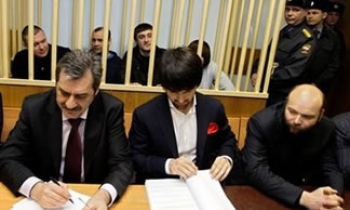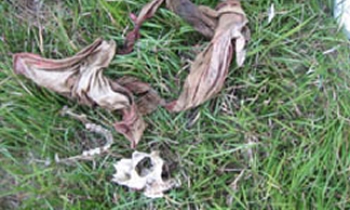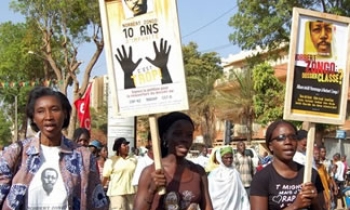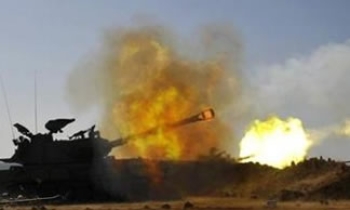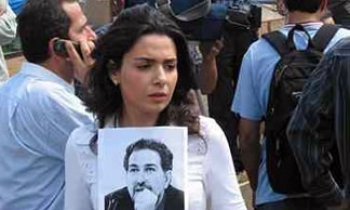NEW YORK (Hollywood Reporter) - Bob Woodruff and Doug Vogt are no strangers to combat or sticky situations. Like hundreds of other journalists, both built their careers on going to war zones and bringing back the story.
But the bomb attack that seriously wounded Woodruff and Vogt shook the news industry Sunday, providing a chilling reminder that covering the war in Iraq has become increasingly dangerous for journalists. More than 60 journalists have died in the line of duty since the war in Iraq began in March 2003, according to the Committee to Protect Journalists. Add injuries, accidental deaths and kidnapping, as in the case of Christian Science Monitor reporter Jill Carroll, and the toll is much higher.
The seriousness of the wounds suffered by Woodruff and Vogt is sure to rekindle the debate about safety that has raged since the war began, with dozens of journalists travelling as "embeds" with military units.
Woodruff and Vogt "did take a lot of precautions but war is very dangerous, and if you're in the line of fire all the protective gear isn't going to protect you 100%," said John Stack, vp newsgathering at Fox News Channel.
"It's an extremely unpleasant reminder of the fact that very few of our colleagues remain there in Iraq and they're constantly at risk," said Chris Cramer, managing director of CNN International. CNN, Fox and other networks have a constant presence in Iraq, but other outlets have pulled out because of the enormous safety concerns.
None of the networks require their crews to go to Iraq; all are volunteers. CNN, for instance, requires that anyone sent to Iraq already have been there for them to understand the risks.
"Strategies for securities keep us all up at night," Stack said.
"There are risks at a variety of different levels, and safety is always, always uppermost in our mind," Cramer said. "It comes before anything else."
The inability to move around at will is one of the most difficult things about covering Iraq, said CBS News reporter Lara Logan, one of the network's most high-profile correspondents in Iraq.
"It's very frustrating because you're so severely limited in your movements, you can't drive anywhere," Logan said. "You used to be able to drive to Fallujah, Ramadi, Najaf. We can't do that anymore." She said the situations in Iraq change so much, often daily, and it's important to know that you're not just risking your safety but also the safety of your crew and the Iraqis who work with you.
She said that there's no sense of bravado or courage that comes with going to Iraq, which she will do in a few weeks. She knows it's dangerous, but there's a job to do, bringing the news of what's happening there to the American people.
"Everything you do is a calculated risk, everything," Logan said. "And even then, you just hope you're lucky."
War zones have always been hazardous areas of duty for journalists. Vietnam was widely considered to be the first television-era conflict where the dangers on the ground were shown night after night in America's living rooms. In the view of "CBS Evening News" anchor Bob Schieffer, who covered the Vietnam War, there's no comparison between the situation facing military and nonmilitary personnel alike in Iraq and in Vietnam nearly 40 years ago.
"This is much more dangerous in my view than Vietnam ever was," Schieffer said. "We could come back to Saigon, get out of the fighting. There was an occasional grenade thrown your way, but it's not the same. We moved around at will."
But Schieffer doesn't think that the dangers mean that Woodruff or other high-profile journalists shouldn't go to Iraq or other places where there's high risk. That's part of the job, the CBS veteran said.
"You've got to go to as close to the story as you can and tell people about it. That's what we do. ... There's no substitute to going and seeing something with your own eyes," Schieffer said.
Logan agrees. She said she believes strongly that it's important to cover the story, one that affects millions of Iraqis and 160,000 American soldiers and their families.
"It's what journalists have always done. What about the journalists who have been in Vietnam, in World War II?" she asked. "It's not just a choice for me. It's an obligation."

